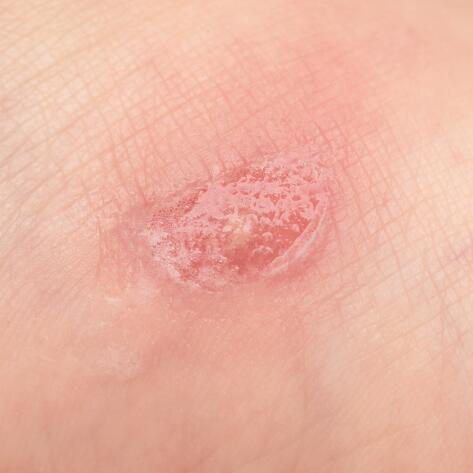How can you make sure your scar heals well?
How can you make sure your scar heals well?
Why is monitoring your healing so important?
When your skin is injured, a natural healing mechanism is triggered to repair it. That’s the magic of your body! A whole commando of cells go into action to regenerate your skin, step by step. They stop the bleeding, protect, sanitise and close the wound before rebuilding the tissue... Your metabolism is put to the test to heal! Yes, your skin has great natural powers. But beware of the risk of complications that could delay healing. Stay alert and give your skin a boost with the right care.
A scar can take several months or even years to reach its final appearance. So good news, you have time to act... But the sooner the better! Give yourself the best chance of a beautiful scar by using creams and other suitable treatments.
Rule 1: keep a close eye on your wound
The quality of your scar is largely determined by the way you treat your wound. A wound is a living area, and its appearance will change over time, more or less quickly depending on the nature of the lesion.
To put it simply: if your wound is red in the early stages, this is usually a good sign. It means that your scar tissue is healing. But take notice if you see a yellowish, stringy appearance or blackish and/or bound patches.
When should you worry?
If your wound hasn’t healed after 6 weeks, becomes painful, has a lot of discharge or a foul smell, you need to consult a healthcare professional.

Good habits to heal well
What are the best ways for the whole family to heal everyday injuries? Read, re-read and memorise these habits so you're not left wondering every time!
Are your hands clean? Clean your wound with mild soap and water to remove foreign bodies. Then dry the wound, preferably with a compress. In the case of a large wound, consider isolating the wound with a bandage.
Apply a scar healing cream at least twice a day to stimulate the skin repair process. If your wound is oozing, choose a drying formula.
3: Sun protection
Scars don’t like the sun. In summer and winter alike, take the right steps to enjoy the sun in complete safety.
FRIENDLY, EXPERT ADVICE
What should I eat to heal properly?
Your body and skin need a healthy, varied diet to heal properly. What a perfect opportunity to try out some new recipes!
Fill your plate with foods rich in vitamin C (citrus fruits, kiwi fruits, strawberries, blackcurrants, capsicum, redcurrants, etc.) and protein, such as eggs, meat and fish. You should also focus on iron-rich foods: seafood, red meat, pulses, etc.
Some foods should be avoided, such as milk, sugar (sadly!) and certain spices (turmeric, ginger, etc.).
OUR SOLUTIONS TO REPAIR YOUR SKIN
The essentials for repairing and soothing sensitive, irritated skin for the whole family.
- Cicalfate+ Absorbing Soothing Spray
Cicalfate+
Cicalfate+ Absorbing Soothing SprayRepairs - Dries - Cleanses - Restores - Restorative Protective Cream
Cicalfate+
Restorative Protective CreamSoothes - Repairs - Cleanses - Restores
NEWSLETTER
We're always here for your skin!
All our tips on how to take care of your skin every day.

Which skin care routine should you adopt?
Identify what it really needs with the help of our experts and discover the most suitable skin care routine for you.




